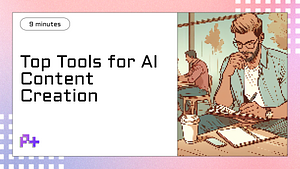Summary
- 1. The Importance of Social Media Management Tools for Brands
- 2. Top 7 Social Media Management Tools You Should Consider
- 3. Key Features to Look for in a Social Media Management Tool
- 4. How to Boost Engagement and Grow Your Audience with Automation
- 5. Future Trends in Social Media Management for 2025 and Beyond
1. The Importance of Social Media Management Tools for Brands
In todays digital landscape, the importance of social media management tools for brands cannot be overstated. These tools serve as the backbone of a successful social media strategy, allowing businesses to streamline their efforts, maintain a consistent online presence, and engage effectively with their audience. With the sheer volume of content generated daily across various platforms, a social media planner tool becomes essential for organizing, scheduling, and analyzing posts. Brands that leverage these tools can save time, reduce stress, and focus on crafting high-quality content that resonates with their target audience.
Moreover, social media planner tools provide valuable insights through analytics and performance tracking. By utilizing these features, brands can measure engagement, track growth, and identify trends in user behavior. This data-driven approach enables them to refine their strategies, optimize posting times, and tailor content to meet the preferences of their audience. Additionally, many of these tools offer collaboration features that allow team members to work seamlessly together, ensuring that everyone is aligned with the brand’s voice and objectives. This collaborative aspect is particularly beneficial for larger organizations or agencies managing multiple clients.
Finally, social media management tools enhance brand visibility and reputation by automating responses and monitoring mentions across platforms. Quick and efficient engagement with followers not only improves customer satisfaction but also fosters a sense of community around the brand. By addressing customer inquiries promptly and managing feedback effectively, brands can cultivate a positive online reputation. Overall, investing in social media planner tools equips brands with the necessary resources to navigate the complexities of social media marketing, ultimately driving growth and enhancing their digital presence.
2. Top 7 Social Media Management Tools You Should Consider
When it comes to effectively managing your social media presence, utilizing the right social media planner tools can make a significant difference. Here are seven top social media management tools that you should consider to streamline your strategy, enhance engagement, and boost productivity. Each of these tools offers unique features tailored to meet the diverse needs of businesses, influencers, and marketing teams alike.
1. Hootsuite is one of the most popular social media planner tools available today. It allows users to schedule posts across multiple platforms, including Facebook, Twitter, Instagram, and LinkedIn, all from one intuitive dashboard. Hootsuite’s analytics feature provides insights into post performance, helping you refine your content strategy based on what resonates with your audience. Additionally, its team collaboration tools enable seamless communication and task management, making it ideal for businesses with multiple social media managers.
2. Buffer is another fantastic option for those looking to simplify their social media scheduling. With its user-friendly interface, Buffer allows you to plan and publish content effortlessly. The tools analytics feature helps you track engagement metrics over time, providing valuable feedback on your social media campaigns. Furthermore, Buffer’s browser extension lets you share content directly from the web, making it a convenient choice for content curation and sharing.
3. Sprout Social stands out for its robust reporting capabilities and customer relationship management (CRM) features. This tool not only provides scheduling and analytics but also offers tools for monitoring brand mentions and audience engagement. Sprout Social’s Smart Inbox consolidates messages from various platforms, enabling you to respond to your audience efficiently. This is particularly useful for businesses that prioritize customer interactions and wish to maintain a responsive social media presence.
4. Later is an excellent visual content planning tool, especially for Instagram users. It allows you to schedule and preview your posts in a visually appealing calendar format, which is crucial for maintaining an attractive Instagram feed. Later also provides a link in bio tool, helping you drive traffic to your website or landing pages directly from your Instagram profile. Its hashtag suggestions feature can also help you discover relevant hashtags to expand your reach.
5. SocialBee offers a unique approach to content categorization, allowing users to create different content buckets for varied themes or topics. This can significantly enhance your content strategy by ensuring a balanced mix of promotional, engaging, and informative posts. SocialBee also integrates with various platforms, making it a versatile choice for businesses of all sizes.
6. CoSchedule is perfect for marketers who want to integrate their social media planning with overall content marketing efforts. It features a content calendar that syncs with your blog posts, email marketing, and social media updates, allowing for a cohesive marketing strategy. With CoSchedule, you can easily assign tasks to team members and track progress, making it a great tool for collaborative projects.
7. Agorapulse is a comprehensive social media management tool that excels in social listening and reporting. It helps you monitor brand mentions and track your competitors, providing insights that can inform your strategy. The tool also features a unified inbox for managing comments and messages, ensuring that you never miss an opportunity to engage with your audience.
In conclusion, choosing the right social media planner tools is crucial for optimizing your social media strategy. Each of these top seven tools offers distinct advantages that can help you save time, increase engagement, and improve your overall social media performance. Whether you’re a small business owner, a marketing professional, or an influencer, integrating these tools into your workflow can lead to greater success in your social media endeavors.
3. Key Features to Look for in a Social Media Management Tool
When selecting the right social media planner tools, its crucial to identify key features that can enhance your social media management strategy. One of the most important features to look for is the ability to schedule posts across multiple platforms. A robust social media management tool should allow you to create a content calendar, enabling you to plan and automate your posts for optimal engagement times. This not only saves time but also ensures that your content reaches your audience when they are most active, maximizing visibility and interaction.
Another essential feature is analytics and reporting capabilities. The best social media planner tools provide detailed insights into your post performance, audience engagement, and growth metrics. With this data at your fingertips, you can make informed decisions about your content strategy, refine your approach, and identify which types of posts resonate most with your audience. Look for tools that offer customizable reports for easy tracking of your KPIs, as this will help you demonstrate the value of your social media efforts to stakeholders.
Lastly, consider the collaboration features within the social media management tool. If you’re working as part of a team, the ability to assign tasks, share drafts, and communicate effectively is vital. Many social media planner tools come with built-in collaboration options, allowing team members to contribute ideas and feedback in real time. A seamless workflow can significantly enhance productivity, ensuring that your social media campaigns are executed smoothly and efficiently. By focusing on these key features, you can select a tool that not only meets your current needs but also scales with your social media strategy as it evolves.
4. How to Boost Engagement and Grow Your Audience with Automation
To effectively boost engagement and grow your audience using social media planner tools, automation plays a crucial role. These tools enable you to schedule posts at optimal times, ensuring that your content reaches your audience when they are most active. By analyzing engagement metrics, you can determine the best times to post and automate your scheduling accordingly. This strategic approach not only saves time but also enhances the likelihood of your content being seen and interacted with, ultimately leading to increased engagement rates.
Additionally, social media planner tools allow for consistent posting, which is key to maintaining audience interest. Consistency helps build brand recognition and loyalty as followers come to expect regular updates from you. Automating your content calendar means you can plan weeks or even months in advance, ensuring a steady stream of relevant and engaging content. Incorporating a mix of promotional posts, informative articles, and interactive content, such as polls and questions, can further stimulate engagement. By leveraging analytics provided by these tools, you can refine your strategy, focusing on the types of content that resonate most with your audience.
Moreover, automation in responding to comments and messages can significantly enhance user engagement. Many social media planner tools offer features that allow you to set up automated replies to common inquiries or comments, ensuring that your audience feels heard and valued. While automation shouldnt replace genuine interaction, it can help manage your time effectively, allowing you to focus on more in-depth conversations with your followers. By combining these automation capabilities with strategic content planning, you can create a dynamic social media presence that not only grows your audience but also fosters a vibrant community around your brand.
5. Future Trends in Social Media Management for 2025 and Beyond
As we look ahead to 2025 and beyond, the landscape of social media management is poised for significant transformation, driven by advancements in technology and shifting user behaviors. One of the most notable trends is the increasing reliance on artificial intelligence (AI) within social media planner tools. AI algorithms are becoming more sophisticated, enabling these tools to analyze user data at an unprecedented scale. This will allow marketers to create highly personalized content that resonates with their audience, enhancing engagement rates and driving conversions. With AI taking the reins, social media planners will be able to automate routine tasks, freeing up valuable time for strategizing and creative endeavors.
Another key trend is the rise of ephemeral content, which refers to content that is temporary and typically disappears after a set period. Platforms like Instagram and Snapchat have already popularized this format, and its influence is expected to grow. Social media planner tools will need to adapt by incorporating features that facilitate the creation and scheduling of such content. This shift reflects a growing desire for authenticity and real-time engagement from users, prompting brands to rethink their content strategies. As a result, social media managers must be agile, ready to leverage these tools to share timely updates and behind-the-scenes glimpses that captivate their audience.
Lastly, the integration of augmented reality (AR) and virtual reality (VR) into social media experiences is on the horizon. These immersive technologies offer exciting opportunities for brands to engage with users in unique ways, creating interactive and memorable experiences. Social media planner tools are expected to evolve to support these formats, allowing marketers to craft AR filters or VR experiences that align with their campaigns. As brands seek to stand out in a crowded digital landscape, leveraging AR and VR will become essential for creating compelling narratives and fostering deeper connections with audiences. Embracing these future trends will empower social media managers to stay ahead of the curve and maximize the impact of their social media strategies.


